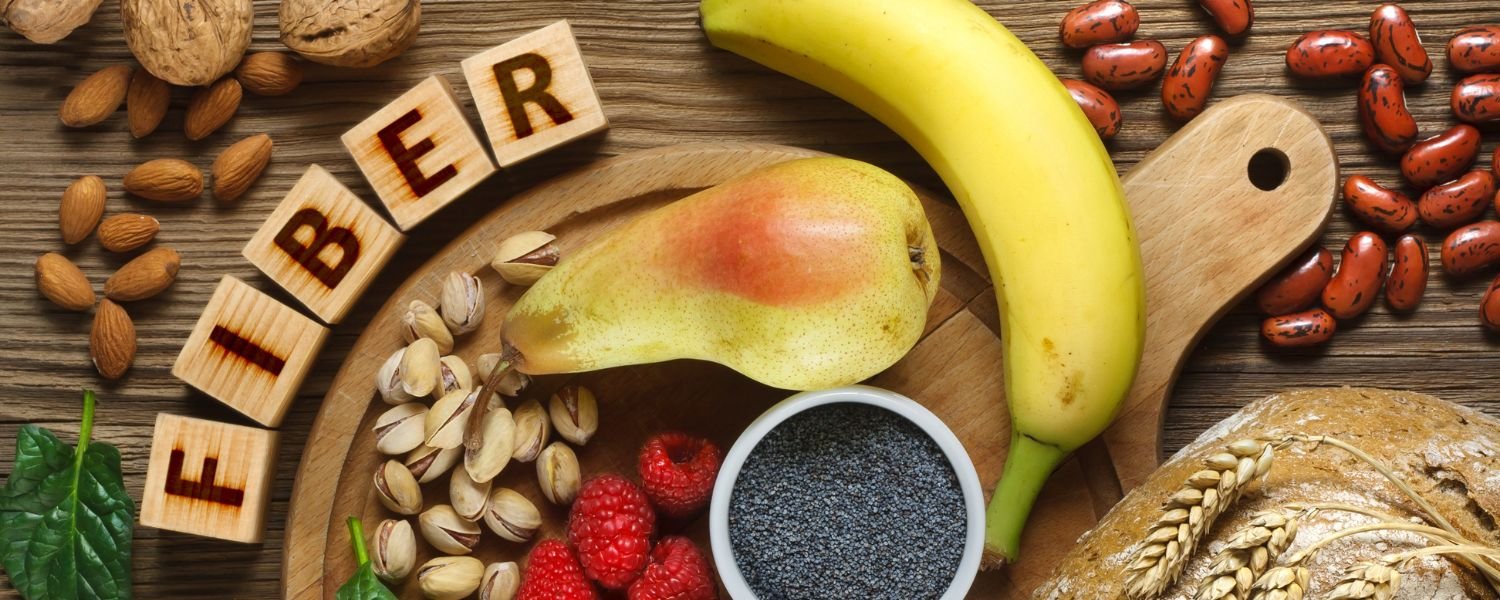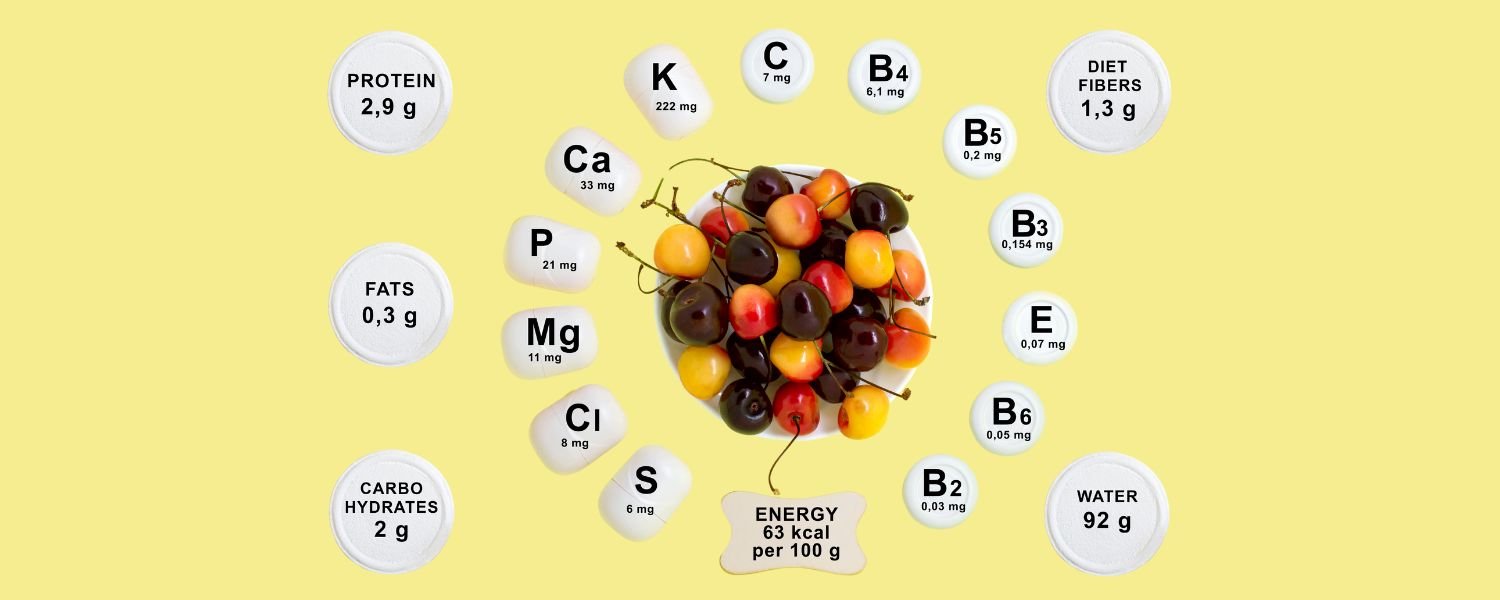A noteworthy option emerges in the pursuit of an efficient fruit diet for weight loss, emphasizing natural and nutrient-dense solutions.
Fruits boast many advantages, encompassing vital vitamins, minerals, and fiber. Thus, they are a fundamental component of a wholesome dietary regimen.
This article explores the role of fruits in weight loss, highlighting their benefits when included in daily meals. It also provides a detailed list of fruits, which is especially helpful for shedding excess weight.
What fruits are good for weight loss?

Certain varieties stand out regarding fruit diet for weight loss due to their unique nutritional profiles and potential to support weight management.
These fruits are typically low in calories but high in fiber, vitamins, and antioxidants, making them ideal choices for those looking to shed excess weight healthily and sustainably.
What Is A Fruit Diet?

A fruit-based diet, often referred to as fruitarianism or frugivorous eating, revolves around consuming fruits as the main component, occasionally complemented by nuts and seeds.
This diet is rooted in the belief that fruits are the ideal food for humans and should constitute the majority, if not the entirety, of one’s diet.
The main principles of a fruit diet include the following:
1. Emphasis on Fruits
The primary focus of a fruit diet is on consuming a wide variety of fruits, including sweet and non-sweet varieties. These may include apples, bananas, berries, citrus fruits, melons, and more.
2. Raw and Fresh
Many proponents of the fruit diet advocate for consuming fruits in their raw and unprocessed form to preserve their nutritional content and enzymes. Raw fruits are believed to be more beneficial for health and digestion than cooked or processed fruits.
3. Minimal or No Animal Products
In its strictest form, a fruit diet excludes all animal products, including meat, dairy, and eggs. However, some variations may allow small amounts of nuts, seeds, and plant-based foods.
4. Limited Processed Foods
Processed foods, such as refined sugars, flour, and oils, are typically avoided on a fruit diet due to their potential negative effects on health and weight management.
5. Seasonal and Local
Proponents of the fruit diet often advocate for consuming seasonal and locally grown fruits to maximize freshness and nutritional content while supporting sustainable agriculture practices.
6. Moderation and Balance
While fruits are the primary focus of the diet, it’s essential to practice moderation and ensure a balanced intake of nutrients, including protein, fats, vitamins, and minerals, to meet the body’s requirements for optimal health.
Low in Calories

One key attribute of a fruit-based diet is its low-calorie nature. Fruits naturally contain fewer calories than other food groups, making them a superb option for individuals aiming to control their weight or establish a calorie deficit for weight loss.
The low-calorie nature of fruits stems from their composition. Most fruits have high water content, contributing to their volume without significantly reducing their calorie count.
For example, watermelon, strawberries, and oranges are fruits with exceptionally high water content, which can help increase feelings of fullness and satisfaction without adding excess calories.
Furthermore, many fruits are naturally low in fat and protein, which are more calorie-dense macronutrients. While these nutrients are important for overall health, their lower presence in fruits contributes to their low-calorie count.
Instead, fruits are rich in vitamins, minerals, and dietary fiber, which provide essential nutrients while contributing minimally to overall calorie intake.
Individuals can create a satisfying and nutrient-rich diet that supports weight management and overall health by including different fruits in meals and snacks.
Additionally, because fruits are naturally sweet, they can satisfy cravings for sugary foods without the added calories and refined sugars often found in processed snacks and desserts.
However, while fruits are low in calories, portion control is still essential, especially for fruits with higher sugar, such as bananas and grapes.
Consuming fruits in moderation as part of a balanced diet is key to reaping their benefits while maintaining a healthy weight.
Overall, fruits’ low-calorie nature makes them a valuable component of any diet focused on weight loss or weight management.
Individuals can enjoy delicious and satisfying foods by including various fruits in meals and snacks while supporting their health and wellness goals.
High in Fiber

Incorporating fruits into your diet, especially for those looking to manage their weight, offers a significant advantage due to their high fiber content, a critical nutritional benefit. Fiber is a carbohydrate in plant-based foods, including fruits, vegetables, whole grains, nuts, and seeds.
It’s famous for its many health advantages, such as enhancing digestive health, balancing blood sugar levels, and aiding in weight management.
Fruits serve as superb providers of dietary fiber, boasting numerous varieties that offer substantial amounts per serving.
Here’s how the high fiber content in fruits contributes to weight loss and overall health:
1. Promotes Satiety
Fiber-rich foods, such as fruits, can increase feelings of fullness and satiety, which can help control appetite and prevent overeating.
When consumed, fiber absorbs water in the digestive tract, expanding in volume and promoting a sense of fullness that can reduce hunger and cravings between meals.
2. Aids Digestion
Dietary fiber is crucial in maintaining regular bowel movements and supporting digestive health. By adding bulk to stool, fiber helps promote bowel regularity, prevent constipation, and support a healthy gut microbiome.
This can contribute to overall well-being and prevent discomfort often associated with digestive issues.
3. Regulates Blood Sugar Levels
Fiber can help slow down the absorption of sugars from carbohydrates in the digestive tract, which helps prevent spikes and crashes in blood sugar levels.
By promoting more stable blood sugar levels, fiber-rich diets may reduce cravings for sugary snacks and contribute to better appetite control.
4. Reduces Caloric Density
Foods high in fiber tend to have a lower caloric density, meaning they provide fewer calories per gram of food compared to low-fiber foods.
By incorporating fiber-rich fruits into meals and snacks, individuals can increase the volume of their food intake without significantly increasing calorie intake.
This can help create a sense of fullness and satisfaction while consuming fewer calories, which benefits weight loss and weight management.
5. Supports Gut Health
Fiber acts as a prebiotic, fueling beneficial bacteria in the gut. A balanced gut microbiome is associated with numerous health benefits, such as supporting immune function, regulating mood, and optimizing metabolism.
Individuals can support the diversity and abundance of beneficial gut bacteria by consuming a diet rich in fiber from fruits and other plant-based foods.
Nutrient Density

Nutrient density signifies the abundance of vital nutrients, encompassing vitamins, minerals, antioxidants, and phytochemicals, within the overall calorie composition of a food. Nutrient-dense foods provide many beneficial nutrients relative to the number of calories they contain.
Fruits are renowned for their exceptional nutrient density, making them an essential component of a healthy diet, particularly for those focusing on weight loss diet and overall well-being.
Here’s how the nutrient density of fruits contributes to their role in supporting weight loss and overall health:
1. Essential Vitamins and Minerals
Fruits are rich sources of essential vitamins and minerals for maintaining optimal health and supporting various bodily functions.
Citrus fruits like oranges and kiwis are great examples. They are packed with vitamin C, a nutrient that enhances immune function and aids in collagen production.
On the other hand, Bananas are loaded with potassium, which plays a very important role in regulating blood pressure and supporting muscle function.
Including an array of fruits in your diet guarantees a rich supply of essential vitamins and minerals, which fosters holistic well-being and energy.
2. Antioxidants and Phytochemicals
Many fruits are packed with antioxidants and phytochemicals, which are bioactive compounds that help protect cells from damage caused by free radicals.
Antioxidants are vital in diminishing inflammation, bolstering cardiovascular well-being, and lowering the likelihood of chronic ailments like cancer and diabetes.
Berries, in particular, are known for their high antioxidant content, with varieties like blueberries, raspberries, and strawberries offering impressive levels of protective compounds.
3. Dietary Fiber
As mentioned earlier, fruits are excellent dietary fiber sources, contributing to their nutrient density. Fiber enhances digestive well-being and feelings of fullness while also contributing to heart health through its ability to lessen cholesterol levels and regulate blood sugar.
Individuals can maximize their dietary fiber intake by choosing whole fruits over processed fruit products or fruit juices and benefit from its various health-promoting effects.
4. Low-Calorie Content
Although fruits boast high nutrient density, they typically contain fewer calories when compared to numerous other food groups.
This makes them ideal for those looking to manage their weight or reduce calorie intake without sacrificing essential nutrients.
By adding nutrient-rich fruits to meals and snacks, people can craft a well-rounded diet that aids in achieving weight loss objectives, all the while supplying vital vitamins, minerals, and antioxidants.
5. Hydration
Besides their nutrient content, many fruits have high water content, contributing to the body’s hydration and overall fluid balance.
Proper hydration supports metabolism, regulates body temperature and promotes overall health and well-being. Fruits such as watermelon, cucumbers, and oranges are exceptionally hydrating.
They can be crucial in fulfilling your daily fluid requirements, particularly in hot weather or engaging in physical activities.
Hydration

Proper hydration is very important for maintaining good health and well-being, and fruits are instrumental in ensuring adequate hydration levels.
Many fruits have high water content, making them excellent natural sources of hydration. Incorporating hydrating fruits into your diet can help you meet your daily fluid needs while enjoying delicious and nutritious foods.
Here’s how the hydration provided by fruits contributes to overall health and supports weight loss:
1. Maintains Fluid Balance
Adequate hydration is essential for maintaining fluid balance, which is necessary for various physiological functions, including digestion, circulation, and temperature regulation.
Hydrating fruits, such as watermelons, oranges, and cucumbers, provide a source of water that helps replenish fluids lost through sweat, urine, and respiration.
2. Supports Physical Performance
Staying hydrated is crucial for optimizing physical performance and endurance during exercise for weight loss or physical activity.
Lack of proper hydration may result in reduced energy levels, increased fatigue, compromised cognitive abilities, and weakened exercise performance and motivation.
Consuming hydrating fruits before, during, and after physical activity can help prevent dehydration and support optimal performance.
3. Promotes Satiation
Hydrating fruits can contribute to feelings of fullness and satiety, which can help prevent overeating and support weight loss efforts.
Incorporating hydrating fruits into your diet can aid in achieving a sense of satisfaction while consuming fewer calories, thus supporting weight management goals.
4. Improves Skin Health
Ensuring adequate hydration is vital for sustaining skin health, as it effectively moisturizes skin cells, rendering them supple and diminishing the visibility of wrinkles, thus fostering a radiant and youthful complexion.
Hydrating fruits, such as berries and citrus fruits, are rich in antioxidants and vitamins that support skin health and protect against oxidative damage caused by free radicals.
5. Enhances Detoxification
Hydration is essential for the body’s natural detoxification processes, including eliminating waste products and toxins through the kidneys and liver.
Drinking water-rich beverages and consuming hydrating fruits can help flush toxins from the body and support overall detoxification, promoting optimal health and well-being.
Natural Sugars and Satiety

Natural sugars found in fruits are crucial in providing energy for the body. They additionally aid in promoting feelings of fullness and can bolster endeavors to lose weight when integrated into a well-rounded eating plan.
Unlike added sugars in processed foods and beverages, the natural sugars in fruits come packaged with essential nutrients, including vitamins, minerals, fiber, and antioxidants, offering numerous health benefits.
Here’s how the natural sugars in fruits contribute to feelings of satiety and support weight loss:
1. Satiety and Fullness
Fruits contain a combination of natural sugars, primarily fructose, glucose, sucrose, and dietary fiber. This fiber slows down the absorption of sugars in the bloodstream, preventing rapid spikes in blood sugar levels and promoting a gradual release of energy.
Combining natural sugars and fiber helps increase feelings of fullness and satiety, reducing hunger and cravings between meals.
2. Stabilizes Blood Sugar Levels
In contrast to the refined sugars in processed foods, the natural sugars in fruits are bundled with fiber. Consequently, they prevent abrupt spikes and drops in blood sugar levels.
By promoting more stable blood sugar levels, fruits can help prevent energy crashes and reduce cravings for sugary snacks, supporting weight loss efforts.
3. Reduces Cravings for Unhealthy Foods
Consuming fruits as snacks or desserts can help satisfy sweet cravings more healthily. The natural sweetness of fruits satisfies the palate while providing essential nutrients and fiber, making them a nutritious alternative to sugary treats and desserts.
4. Provides Sustained Energy
The natural sugars in fruits release energy gradually over time, providing sustained fuel for physical activity and daily tasks.
Unlike foods high in refined sugars, which can cause energy crashes and fatigue, fruits offer a steady energy supply without the accompanying blood sugar spikes and dips.
This sustained energy can help improve endurance, performance, and motivation for exercise, supporting weight loss goals.
5. Balanced Nutrition
Besides their natural sugars, fruits provide abundant essential vitamins, minerals, and antioxidants crucial for overall health.
Including a diverse array of fruits in your diet guarantees a broad spectrum of nutrients that bolster various bodily functions, such as metabolism, immune response, and cellular rejuvenation.
15 Fruits That Help With Weight Loss

A. Apples: Rich in fiber and antioxidants, apples make a satisfying and nutritious snack for weight loss.
B. Avocado: Although technically a fruit, avocados are a unique source of healthy fats that promote satiety and support weight loss.
C. Blueberries: Blueberries, rich in antioxidants and fiber, are delectable in any weight loss regimen.
D. Cherries: Low in calories and high in antioxidants, cherries make a sweet and nutritious snack option.
E. Dates: While higher in calories than some other fruits, dates are a natural energy source and can be enjoyed in moderation as part of a balanced diet.
F. Grapefruit: Known for its metabolism-boosting properties, grapefruit is often included in weight loss meal plans.
G. Kiwi: Kiwi is a rich vitamin C and fiber source, a rejuvenating and nutritious fruit for weight management.
H. Lemon: Adding lemon to water or as a flavor enhancer can help promote hydration and support weight loss efforts.
I. Mango: Despite their natural sweetness, mangoes have a comparatively low calorie count, rendering them a superb selection for those seeking a healthier dessert alternative.
J. Oranges: Oranges boast high vitamin C and fiber levels, making them a fulfilling and nourishing snack option conducive to weight loss.
K. Pears: Due to their abundant fiber content, pears can enhance sensations of fullness and decrease overall calorie consumption.
L. Pomegranate: Packed with antioxidants, pomegranate seeds make a delicious and nutritious addition to salads and snacks.
M. Raspberries: With their low-calorie content and high fiber levels, raspberries present a flavorful and nourishing choice for those aiming for weight loss.
O. Strawberries: Strawberries boast a wealth of vitamin C and antioxidants, making them a delectable solution for sweet cravings while simultaneously aiding in the pursuit of weight loss objectives.
P. Watermelon: With its high water content, watermelon is a hydrating and refreshing fruit that can help promote feelings of fullness.
Conclusion
In conclusion, a fruit diet for weight loss offers a nutrient-rich and sustainable approach to shedding excess weight.
Including different fruits into your daily meals and snacks allows you to craft a nutritionally balanced diet that not only aids in achieving your weight loss objectives but also delivers vital nutrients crucial for overall health and well-being.
Remember to pair your fruit diet for weight loss with regular exercise, such as belly fat exercises and exercises for weight loss, for optimal results.
The fruit diet, rich in vitamins, minerals, and fiber, proves effective for weight loss and fostering enduring health and vitality.
For more health related blogs subscribe Us!
FAQ
Q: Can I eat unlimited fruit on a fruit diet for weight loss?
A: While fruits are nutritious, practicing portion control is essential, as they still contain calories.
Concentrate on integrating diverse fruits into your diet while remaining aware of your total calorie consumption.
Q: Are there any fruits I should avoid on a fruit diet for weight loss?
A: All fruits can be included in moderation as part of a balanced weight-loss diet.
However, some fruits, such as dried fruits, may have higher calories and sugar, so it’s best to enjoy them in moderation.

